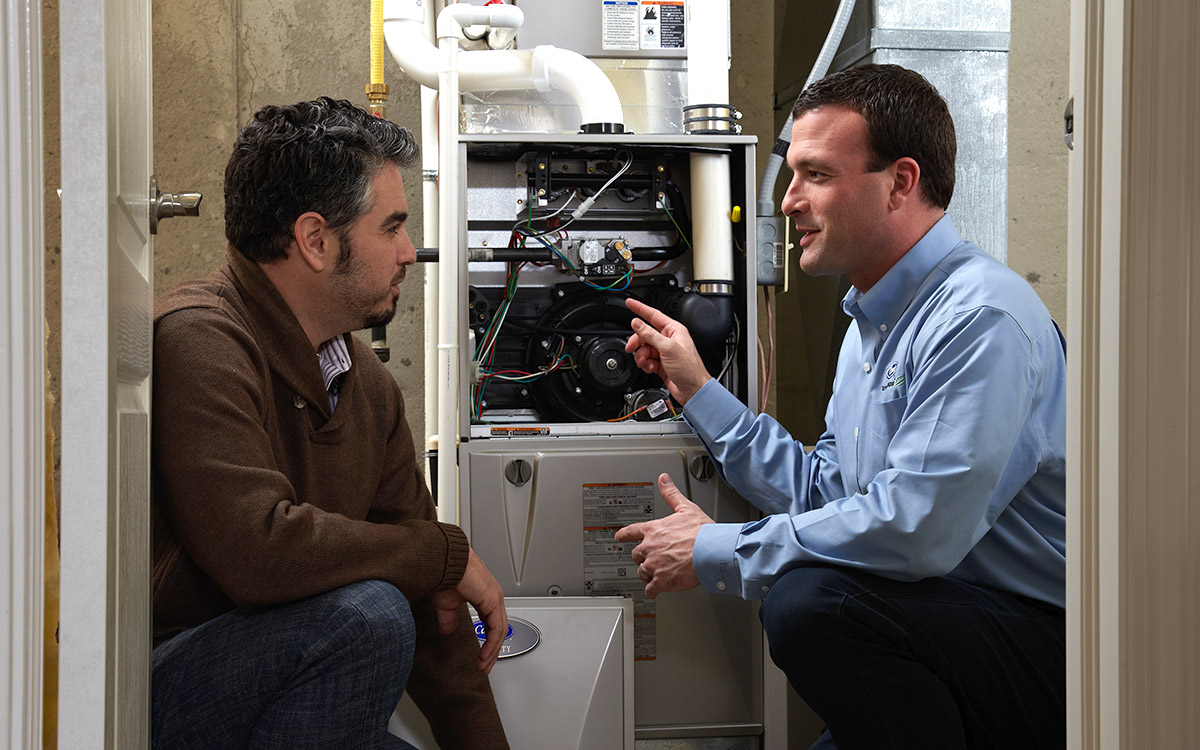
Going the DIY route is a great way to save money but some things are best left to the pros; one of them being HVAC installation.
HVAC systems are very complex machines and installing them requires a lot of work. While you can still install a residential HVAC system yourself, it’s not going to be an easy job, and one small mistake can affect your HVAC systems performance, or worse, put you in danger.
Yes, trying to DIY HVAC installation can be dangerous if you don’t know what you’re doing. Usually, the best thing to do is to call professional residential HVAC installers instead.
Let’s delve into the dangers of installing an HVAC system on your own.
1. You may mishandle electrical equipment
About 400 people are electrocuted at home each year in the US, often resulting in nearly 200 deaths. When you’re installing an HVAC system, you’ll need to handle some sensitive electrical components.
If you’re inexperienced at this, there’s a chance you may get an electrical shock, which could result in serious injury or even death. Some HVAC components may carry a high voltage and without the proper equipment, you may accidentally touch them and hurt yourself.
HVAC professionals are trained in handling high-voltage electrical components and have the necessary safety equipment for the job.
2. You may be exposed to dangerous chemicals
HVAC systems use chemicals called refrigerants to cool the air from your home. These chemicals can be dangerous to humans and pets if not handled properly. They’re known to cause symptoms, like vomiting, nausea, irritation of the eyes and skin and even frostbite, which could result in amputation.
Also, refrigerants will need to be disposed of properly, otherwise, they could come into contact with children and pets.
Residential HVAC installers are trained to handle these chemicals with extreme care. After replacing your refrigerant, they will make sure that the old refrigerant is disposed of properly and safely.
3. You may mishandle gas lines
Your HVAC system’s furnace will usually need natural gas to run and this will mean having to install gas lines. Since 2010, there have been over 2,700 gas leak incidents across the US. Many of these sent people to the hospital and caused more than $120,000 in property damages.
Without proper care, it can be easy to make a mistake rerouting or installing a gas line, and this can lead to gas leaks. About 90% of natural gas is made up of methane, which is a highly explosive gas if exposed to a direct flame.
Also, natural gas used for HVAC systems is colorless and odorless, making it almost impossible to detect gas leaks until it’s too late. Professional HVAC installers know how to handle gas lines carefully and ensure the job is completed without putting you and your family at risk.
4. You may have to deal with legal issues
An improperly installed HVAC system can potentially lead to legal issues. For example, if an HVAC system malfunctions when you are having a guest over and causes injury, you could find yourself facing serious charges.
Also, if you cause damage to neighboring homes while installing gas lines for your HVAC system, there is a chance that you may be faced with expensive legal disputes.
HVAC installers will make sure that your HVAC system is installed properly, within regulations and in a way that won’t cause harm to others or the environment.
5. You may be exposed to allergens
In the US, about 20 million people have dust mite allergies. What’s worse is that these critters can be found almost anywhere, especially in places like your home’s ceiling.
Depending on the type of HVAC system you choose, you may need to open up your ceiling or floors to make way for ductwork. This can lead to you and others around you being exposed to dust mites, and this may lead to allergic reactions if you, anyone in your household, or your neighbors have allergies.
If you or anyone in your household have dust mite allergies, it’s best to leave the HVAC installation to the professionals. While the HVAC system is being installed, you and your family can temporarily move out of your home to avoid exposure to dust.
6. You may have to deal with voiding warranties
Some HVAC systems come with warranties that require you to call on a professional for installation and maintenance. These requirements may apply to the entire duration of the warranty.
In this case, if you attempt to install the system by yourself, you may end up voiding the warranty. This can lead to excessive costs for repairs or replacements if anything goes wrong with your system.
Regardless of what your HVAC system’s warranty says, you should always call residential HVAC installers to install your HVAC systems to avoid issues with the warranty.
Frequently Asked Questions
Below are some commonly asked questions we receive from our customers:
1. How do I determine the right-size HVAC unit for my home?
An HVAC professional will perform a load calculation based on your home’s size, insulation, and climate. This ensures you get an appropriately sized HVAC unit for optimal comfort and efficiency.
2. How long does it take to install an HVAC system?
The installation time for an HVAC system can vary based on factors like the type of HVAC, your home’s size, and existing ductwork. On average, it takes about 1-2 days for a professional HVAC installer to complete the installation.
3. What certifications should HVAC installers have?
Look for installers with certifications such as NATE (North American Technician Excellence) or state-specific licenses. These certifications demonstrate expertise and professionalism.
Get in touch with residential HVAC installers today
While going down the DIY route can potentially save you a lot of money, when it comes to HVAC installation, it’s always better to get the professionals involved. HVAC systems are complex and expensive machines, if you fail to do the installation properly, you may not get the best out of it and you might even put yourself in harm’s way.
So get in touch with professional HVAC installation services today!

